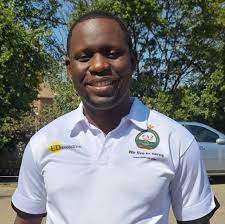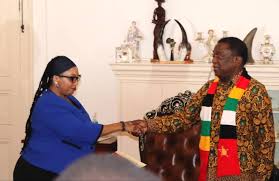Brenna Matendere
Harare—Forever Associates of Zimbabwe (FAZ), a shadowy ruling Zanu PF affiliate and proxy of the Central Intelligence Organisation (CIO), was part of the Zimbabwe election observer mission to the 2024 Russian presidential election, NewsHub has been told.
The FAZ purports to be a private non-governmental organisation and the reasons behind the government involving the outfit could not be immediately ascertained.
The organisation, though, has not made it a secret that, at its formation in 2010, it registered “with the support of the then ministry of State for Presidential Affairs”.
Its bid to benefit from the government’s economic empowerment programme failed and it re-emerged in late 2022 when, under the stewardship of the CIO deputy director general, Walter Tapfumaneyi, it coordinated the Zanu PF primary elections ahead of the 2023 general polls.
At last year’s polls—again under Tapfumaneyi and the CIO—FAZ helped campaign primarily for President Mnangagwa but also Zanu PF, gathering voter intelligence, intimidating the electorate and helping in efforts to suppress voting in critical constituencies.
The Zimbabwe Electoral Commission (ZEC) chairperson, Priscilla Chigumba, headed the election observation delegation to Russia.
FAZ was represented by its president, Kudakwashe Mavula Munsaka, who was accompanied by an unspecified number of the organisation’s members and CIO operatives, according to sources close to the developments.
One of the trusted sources said FAZ was roped into the observer mission so as to allow it to “learn the ropes” on how Moscow runs its elections that have kept Vladimir Putin in power as president between 2000 and 2008 and then 2012 to date.
“Munsaka went with a few members of the CIO and (other FAZ members). They, however, did not want the nation to know about their presence in Moscow during the elections.
“They have since returned but no report back has been made to the generality of the FAZ membership. That trip has been kept a closely guarded secret,” said another source.
Munsaka did not deny that a FAZ delegation went to Russia, but he was not willing to comment on the matter.
“I cannot comment about that,” he told NewsHub.

The ZEC deputy chairperson, Rodney Simukai Kiwa would not be drawn into commenting on the FAZ presence in the Zimbabwean delegation to Russia.
“What I know is that the Zimbabwe delegation had people from mixed groups and sectors. I know there were people from the Foreign Affairs ministry parliamentarians and so on. However, it would be difficult for me to comment on specific names of people who went there. That is really difficult for me,” he said.
The sources claimed that the FAZ team did not use public funds for the trip.
“They used money from our donors. As FAZ, we have donors that support our work and this is the money that they used to fly to Russia,” said another insider.
The source of funding for FAZ’s expensive operations has been shrouded in secrecy amid speculation that the government is churning out millions of dollars to finance the CIO proxy.
The ZEC boss, Chigumba, drew criticism when she said the Russian presidential poll was held in an “efficient and professional manner”.

Pro-democracy commentators, however, described the poll that Putin won with slightly more than 87 percent and gifted him a fifth term in office—making him the longest ruling Russian leader after Stalin—a “stage managed” sham.
There was no serious and credible opposition to Putin, a former senior KGB operative, as the Kremlin had eliminated competition well ahead of the polls.
Putin’s strongest opponents had been jailed, forced to flee into exile or died under mysterious circumstances.
Russia is infamous for using unorthodox means to deal with anti-regime critics.
Alexei Navalny, a prominent Russian opposition figure and anti-corruption activist, died in detention in February at the IK-3 penal colony in the Arctic Circle known for harsh winter and inhuman living conditions.
He was serving a 19-year sentence and his supporters staged symbolic protests across Russia during the weekend of the elections.
Ukrainian president, Volodymyr Zelensky whose country has been at war with Russia since early 2022, said “the Russian dictator (Putin) was simulating another election”.
The United States said Russian elections were “obviously not free nor fair” as Putin had imprisoned his opponents and prevented others from running against him.
Germany called it a “pseudo-election” under an authoritarian ruler reliant on censorship, repression and violence, according to the BBC.


Comments are closed.